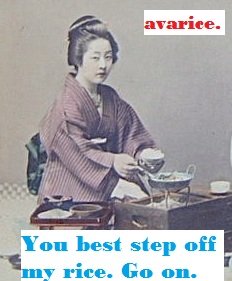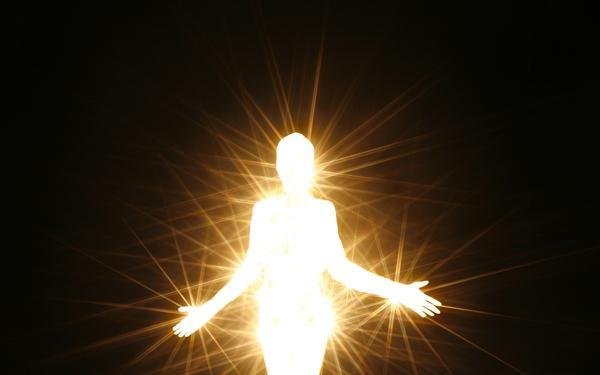
The first approach, that of being frightened into further fantasies, means that our reaction to our own mortality is to create as many distractions as we can to pacify our mind and our emotional attachment to the delusion of immortality we have held on to since adolescence. We continue life as though it were business as usual, always looking for the greener grass just over the horizon. We perpetuate comparisons of ourselves with others and constantly struggle to keep up with the status quo. We work hard to acquire the things that we believe will bring us satisfaction. We desperately search for new external objects and social guises to alleviate our uncertainties of our impending demise.
We may fall into the trap of the “ignorance is bliss” philosophy. That is to say, the less we think about things that may cause us harm the less they are able to harm us. This attitude is no different from a 3-year-old child who covers his eyes to hide from someone thinking, “If I can’t see them, they can’t see me.” Unfortunately, life does not work like that. Ignoring things does not make them go away. If we cut our finger, it bleeds. Choosing not to notice the bleeding does not cause the wound to heal. In fact, choosing to ignore it could be the very thing that causes us to lose such a fragile existence.
One may think that being more conscious of our unavoidable demise is a horrible way to live. We may tell ourselves that, “even if I only live to be 40 I will at least have lived an enjoyable life. If I were to reflect on my own death all the time, I would most certainly suffer a depressing and miserable existence.” However, if we examine closely the lives of those who hold on desperately to this life through social and societal costumes, insecurities, pride and fear, we may see the result to be quite contrary to the previous concepts.

Usually, when we hold such views we tend to guard our precious life in the same way a thief guards that which he has stolen. A thief is always looking out for other thieves who might come and take away his riches. Likewise, A person who harbors the view that his life will become more fruitful if he continuously seeks satisfaction through distraction will guard his life, which he believes to be inseparable from his possessions, and regard his fellow men as potential adversaries.
Once we have taken this position, our rational mind can easily become obscured by our ego and our ability to trust and relate to others diminishes. Our sole purpose in life is to ensure our own well-being. Therefore, with this perspective we set out to do what we believe is in our best interest. With inflated ego and irrational predisposition, we actively participate in this world without regard for anyone or anything apart from our own satisfaction. Although “satisfaction” is fleeting, due to internal and external circumstances and the law of impermanence, we nonetheless seek it at all costs.
We may find ourselves saying things like “You can’t make an omelet without breaking a few eggs.” Or, we may justify our behavior by pointing out all the other people in the world who share this view, somehow easing our conscience with the belief that “It’s a dog eat dog world out there.” The further we go into this ego clinging the further we separate ourselves from each other.

Even if this attitude were to become the cause of our rise to power, we will spend our days at the top unable to enjoy the company of others and oblivious to the way we are viewed from the outside, which we previously felt was so important. From fear of our power and knowledge of our lack of concern for our fellow man, people will not trust us and will keep their distance. Yet, provoked by fear they may smile and pretend to be our friend to appease us as to soften any blows that may fall upon them lest they in anyway threaten our precious ego.
Of course, it is extremely difficult to go through life without realizing that we cannot rise in this world without the help of others. We therefore find ourselves in the flux of maintaining relationships with those we feel may better our lives while constantly questioning how much we can trust them and others in our presence. We may then adopt the old adage “Keep your friends close and your enemies closer.” The result of such views is extreme paranoia and a very unsettled state of mind.
The peace and satisfaction we had wagered to gain from the beginning has been replaced with our new obsession of saving face in the public eye and obtaining the things that we desire at any given moment. Due to our unstable mind and our fanatical fixation on the pleasures of the senses as a distraction from reality, our desires become as numerous as the number of thoughts we can have in a given day.
We may become unable to accomplish even one percent of these wishes, thus leaving us feeling perpetually discontented and lonely. We may begin to turn to those closest to us in disgust. Our insatiable habits of desiring that which is bigger and better will begin to be directed at those who are dearest to us. The things that we find lacking in ourselves, we will accuse others of, verbally or in our thoughts and actions, thus causing further separation and absence of companionship.
When reflecting on our actions and ourselves we may feel that we are like everyone else. We may even superimpose our views as an explanation for other people’s actions. To us we are living in a world where everyone is looking out for themselves without, or with very little, concern for those around them. To others we may seem like a monster yet we may never hear it directly.
This leads to the persistence of such unflattering behavior causing the continuation of our complete ignorance in our affect on the world around us.
The second approach, of being scared straight into a search for our true voice, means that our reaction to our own mortality is to reassess our perspectives and views of ourselves as well as our position in the world around us.

We may begin to look inside ourselves for answers to the “Who am I” question. We might start to analyze our behavior and what motivates us to act in certain ways. We begin to be honest with ourselves. We are well aware of how fragile this life is and do not intend to waste it away carelessly. We humble ourselves with the notion that we are not infallible. We know we are human and that as humans we have certain tendencies. We begin to question these tendencies and examine our intentions and their results.
We start to look deeper within ourselves for a cause to all of our consequences. For example, “Why do I like adventure movies?” “What is it about Jimi Hendrix that I really like?” “ Do I truly dislike love stories, or am I just afraid of being labeled a softy?” When we ask ourselves these questions, we learn more and more about who we truly are. As we become familiar with ourselves we begin to strip away all of our doubts and fears. We are able to say with confidence, “this is what I like”, “These are my opinions.”
The further we search the more we find out about ourselves. As we become more confident about who we are, our thoughts and emotions become more stable. We gain a clear and discerning mind that is able to naturally detect how the people around us are affected by our actions. This is because as we become aware of ourselves we naturally become aware of others as a result.
When we are observing our own causes and consequences, we are not only observing the world within ourselves but also the world around us. By developing a discriminating mind, we cannot help but see that our own thoughts and opinions are no more or no less valuable than anyone else’s. We are able to see that our differences are actually what make us so similar to each other. Being “different” is a common thread in all of humanity. If everyone had the same thoughts and opinions, we would never experience anything new. It is our differences that make our lives interesting. When we begin to see these “differences” as beautiful and plentiful, our world becomes filled with marvelously wondrous adventures.
Being mindful of how fragile our lives are we begin to appreciate each living moment, each breathe, and every obstacle becomes an exciting adventure with new treasures of insight to discover. We may learn, from asking ourselves the right questions, what path we should take to find true happiness. By familiarizing ourselves with our true proclivities, we may be able to set a course for the not so distant shores of true self-awareness.
From our efforts of being honest with ourselves, we will gain the confidence to be honest with others. We will no longer feel the need to hide our true nature from others out of concern for social taboos or fear of exposing our vulnerabilities. If we spend enough time in contemplation on ourselves, we may uncover our true identity in the process.
This is not unlike a tarnished piece of silver or gold. At first glance, it is a stone like any other. However, with the right kind of effort and vigilant diligence, slowly the tarnish is removed layer-by-layer revealing its true nature. Brilliant and beautiful, the precious stone becomes exposed for all to see and all are able to share in its magnificence. Although many who saw this stone when it was obscured by many imperfections are still unable to see that the previous stone and the radiant one before them are truly the same, no amount of criticism or lack of encouragement can keep it from shining brightly with unwavering confidence. It is and has always been its nature to shine.

We may choose many different paths in this life. We must make the effort to see why we have made these choices. Who is making these decisions? Is who we are determined by outside or inside forces?
Chances are we may relate to both types of people mentioned above. We have the opportunity at every moment to be the first or the latter type of person. The important thing is to keep it in balance. The road to self-awareness can easily take a detour towards ego clinging and disregard for others.
Every waking moment is permeated with infinite possibilities. It is what we do with these possibilities that shape who we are and what we are to become.

Thanks. Difference can certainly feel a challenge but resisting differences can be even more so! Have you read the story about Butcher Ding, the ox and the foundary bell?
I haven’t but I will definitely look that up. It is a parable I assume?
Hi yes I believe it is. A good story about being able to work with what you have got and to find the path of least resistance and maximum effect.
I read it soon after I posted that comment last week. I wish I knew more about the Tao. Anyway, I appreciate you sharing that with me. It was definitely worth my time to read and ponder its meanings.
That's great. I often think of the story, it reminds me to try a bit less resistance and a bit more flow. Or to try not to try so hard! :)
“Too many mind!” - The last Samurai LOL!